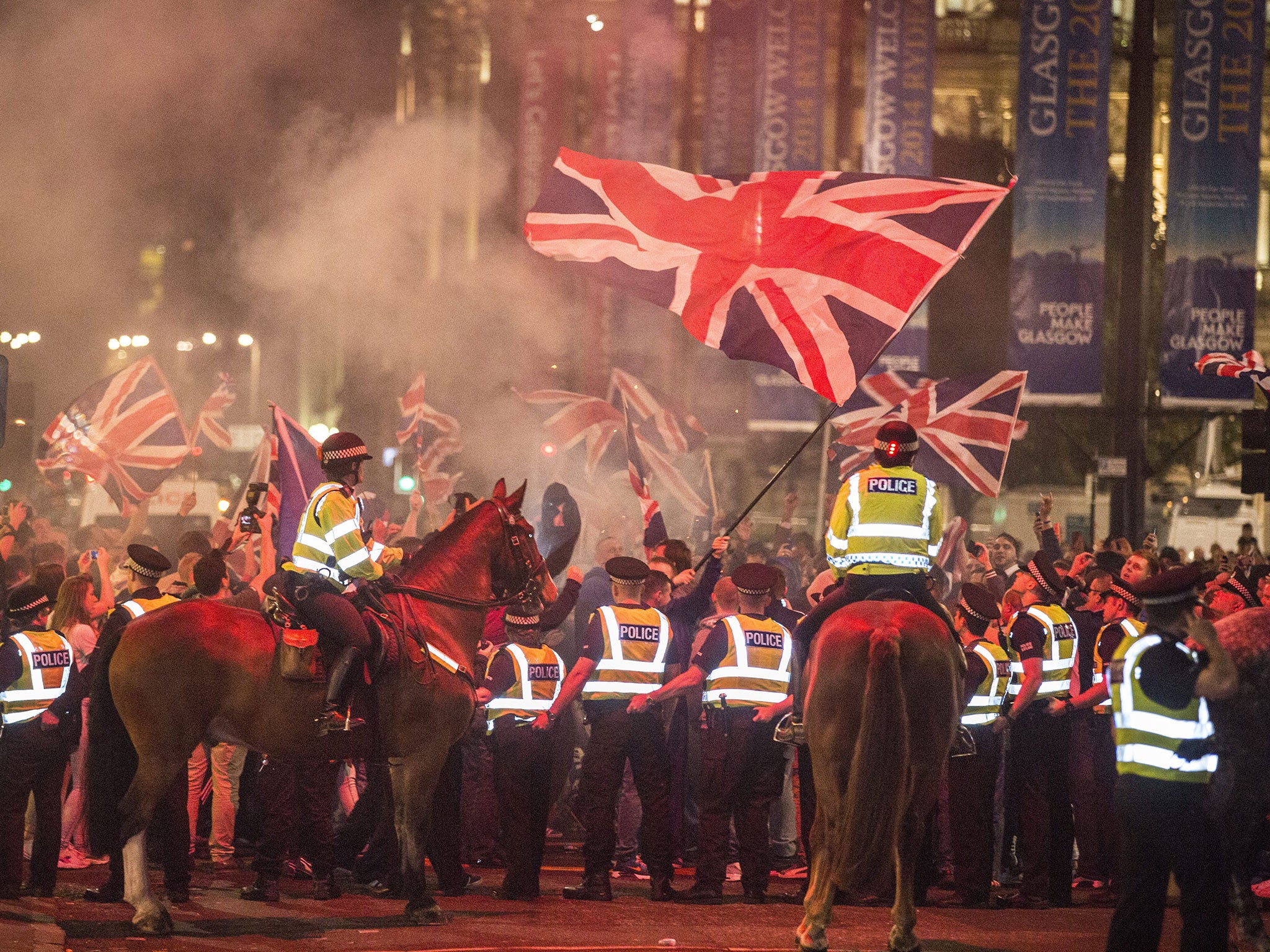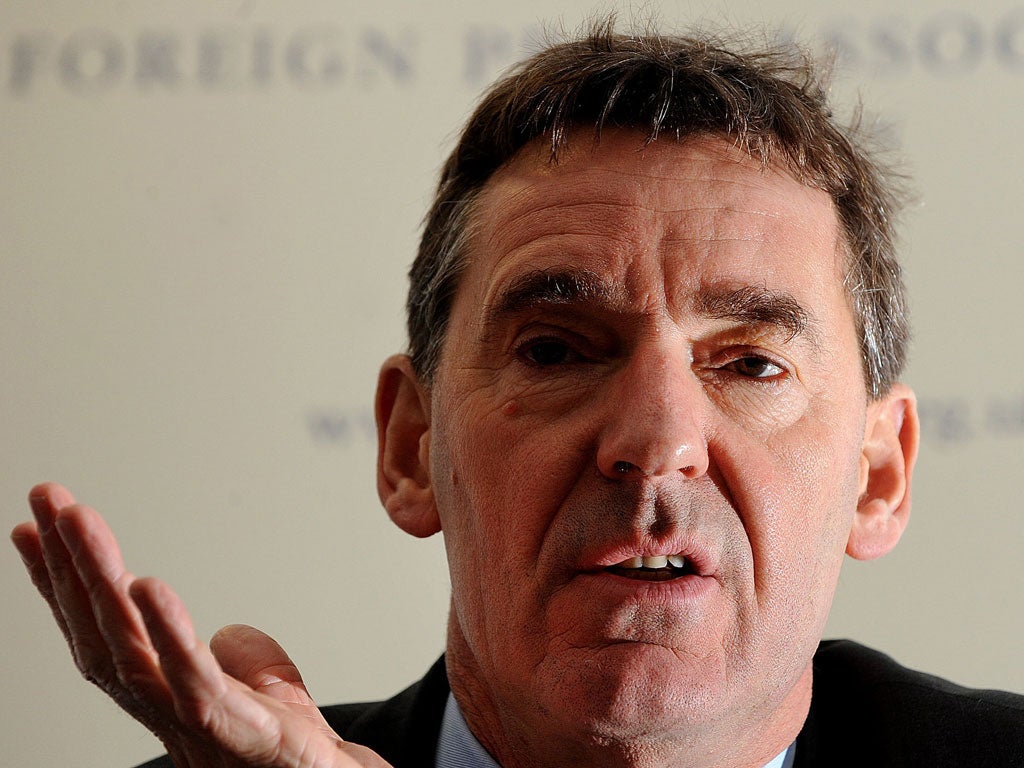Devolution for the North would be great if only Manchester didn’t rile the region’s other major cities so much
Let’s sound a note of caution over the ManSheffLeedsPool idea


There's a palpable sense of excitement in the North of England. It’s a sense that something is coming, that after centuries of disregard by the capital and its poncey southern inhabitants, the flat cap wearers and black pudding eaters (I can say that as Northerner meself, from Cumbria) are on the cusp of getting a say in their own destiny.
For that they have two people to thank: Alex Salmond for running the Scottish independence battle so close; and Jim O’Neill, a son of Manchester and former Goldman Sachs economist.
Salmond provoked such fear at Westminster that the Union was about to break that he secured more concessions, or “Devo Max”, from the Government. Fair’s fair, and Northerners would like the same.
O’Neill has added grit to their argument by maintaining, via the City Growth Commission that he chairs, that devolution from Whitehall would boost economic output in the UK’s largest metropolitan areas, most of which are in the North, by £79bn per year or almost 5 per cent of GDP.
At a time when the Government is struggling to find pockets of growth, when inward investment must be secured against fierce competition from rival foreign destinations, a claim like that is not to be ignored.
O’Neill - who coined the word Brics to define the emerging markets of Brazil, Russia, India and China - is already speaking in terms of ManSheffLeedsPool.
Another term being bandied about is Noyster, as in an Oyster card like the one used by London travellers but for the Northern cities.
I’m all for devolution for the North, and have argued as such here before, giving Campaign for the North, led by former Tory MP Harold Elletson, my backing.
I’m all too familiar with the void between the region and capital, how London dominates and clouds our national zeitgeist and economic life.
It’s rare to find a country with a population the size of the UK where one city enjoys such power. London accounts for 25 per cent of the UK economy, versus Paris’ 10 per cent for France’s.
While London has enjoyed huge improvements to its infrastructure, the North’s has withered.
Travelling what, according to the map, should be the simplest journey between any two Northern cities – it does not matter which, take your pick – is a nightmare. There’s one cross-Pennine motorway, and a ropey train service. Traffic around some Northern cities – Manchester and Leeds in particular – is seemingly permanently clogged.
Whereas London has continued to play to its strength as a financial services and a creative magnet, cities in the North have forgotten their skills, preferring to abandon the industries at which they once excelled in favour of becoming homogenised centres, specialising at nothing in particular.
All of which points to the need for greater local control and separation. But before we get carried away with O’Neill’s ManSheffLeedsPool a note of caution should be inserted.
The idea that the Northern cities get along famously together to the extent they can be lumped together under one umbrella is laughable.
They cannot abide each other. Theirs is not a rivalry confined to the football pitch or to history in the form of the white rose versus the red rose – although that should give some indication of the tensions that exist.
Just because they have one common enemy, London, does not mean they are joined at the hip. Quite the reverse.

O’Neill may have invented Brics but he did not suggest Russia, India and China should link arms – if he had he would have received the same response as if he’d suggested that Manchester, Sheffield, Leeds and Liverpool should unite. It can’t happen.
They share the same jokes, humour, folklore and culture. To an extent their histories are similar. But within the different city halls, deep-seated rivalries remain.
There is another single target, shared by all the cities bar one. The other places cannot stand Manchester.
They’re aggrieved at the way Manchester has claimed “Second City” status, annoyed that of all the Northern cities it has received the biggest overhaul (thanks largely to the Commonwealth Games and the IRA bombing of its shopping centre), and suspicious of its future intentions.
It’s not gone unnoticed that O’Neill is a Manc, that his city appears first in his chosen moniker, that the BBC has relocated to Greater Manchester, that much of the chat revolves around the North-West city.
There’s no doubt in their minds as to which of them sees itself as the natural leader, the regional hub and prime influence.
In his report O’Neill is sensitive to the simmering hostility, arguing they must get over their mutual animosity and work together, especially if they wish to receive more say over spending. It’s impossible, however, not to see rows galore ahead.
Their situation is not the same as that which exists between Edinburgh and Glasgow or Cardiff and Swansea. Both Edinburgh and Cardiff were anointed by London as their nation’s capitals, and became governmental satellites with imposing architecture to match.
Manchester, for all its pretension to grandeur, is really little different from its fellow Northern cities. In fact, it’s remarkable how similar they are.
If Scotland can have “devo max”, the rest of Britain deserves it too. Let no one pretend, though that it’s going to be easy.


Join our commenting forum
Join thought-provoking conversations, follow other Independent readers and see their replies